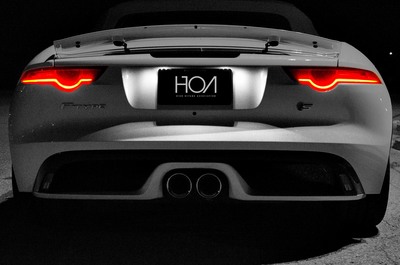High Octane Alliance Applauds EPA's Recall of CAFE Rule
TACH's TAKE: How Can Such Smart People Be So Stupid About Ethanol
TACH's TAKE: The New York Times Buys Into CAFE 54.5 Obfuscation (Orig Published August 14, 2016)
WASHINGTON, DC - March 15, 2017: The High Octane Low Carbon Alliance called today's announcement that the Trump Administration was recalling the fuel economy rule an important first step in achieving realistic reductions in fuel consumption.
Alliance Chairman Tom Daschle said the recall was necessary due to the fact the rule, while well intended, was simply rushed through last year without the thorough and comprehensive review that was part of the agreement to require significant increases in fuel economy and reduced emissions.
According to Daschle, the Corporate Average Fuel Economy (CAFE) rule of 2012 was one of the most forward looking regulatory actions in recent memory and established efficiency requirements out to 2025. As part of the rule making automakers and EPA, with input from the Department of Transportation and the California Air Resources Board, agreed to conduct a Midterm Evaluation (MTE) in 2016 to determine if the standards were still “appropriate”. The evaluation was to have taken place beginning in mid 2016 through 2017 with a final determination to be issued in 2018. Instead, the evaluation was conducted over a brief three month period and EPA made a determination that the standards could be met.
Daschle said the MTE should have included an assessment of the important role high octane fuels can play in reaching tough new standards. In comments filed last year and again as the rule was finalized, the Alliance argued that looking at fuels and engines as an integrated system is critical to a realistic assessment of whether the standards were still appropriate.
This is particularly important because some of the basic assumptions that led to such aggressive increases in the requirements have failed to materialize. Key among those was the predictions of high oil prices that would not only curtail driving and fuel consumption but also the predictions of consumer preference for electric vehicles and smaller cars. While acknowledging that impressive gains have been made in recent years, it is going to be increasingly difficult if not impossible to keep up that pace, he said.
"We are seeing a clear pattern of consumers wanting to take advantage of lower fuel costs and purchasing larger vehicles. It is clear the internal combustion engine will remain the primary propulsion pathway so lets make those engines as efficient as possible through cleaner, high octane fuels", said Daschle. In fact, Daschle added, the Department of Energy predicts by 2025 nearly 80% of new cars will be turbocharged requiring higher octane than today's 87.
"We have a host of options available to produce such fuels, including adding 20% ethanol to our base fuel of E10 which would provide a low cost 94 octane," he said. " All we are asking EPA to do is look at this and other high octane scenarios and realize we can achieve the goals of the program while providing consumer choice."



